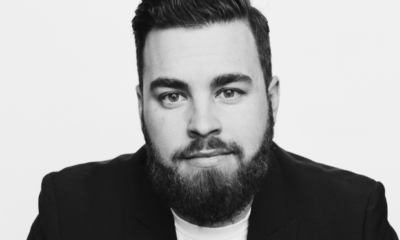Life
How To Be Happier And More Focused Using The Art Of Tidying Up: 34 Lessons From My Huge Tidy Up.

Last week I spent two days throwing out more than 50% of my personal belongings.
What started this tidying up frenzy that caused me to throw out so much of my life’s possessions? It was a book that I read. In fact, I’ve read several books recently about why we should clean up our material possessions.
The results I experienced were phenomenal. By the end of this blog post, you’ll definitely want to do the same to replicate the results I got from this simple process.
Here are the 34 lessons from my huge tidy up which will inspire you to do the same:
1. Your mindset changes when you tidy up in one shot rather than bit by bit.
I’ve tried to tidy up for the last five years. It never fully happened. The reason was that I attempted to do this mammoth task in small chunks. As I tidied up one space or one category of belongings, I’d end up collecting more junk in the meantime.
“Seeing your home and workspace completely junk-free changes your mindset permanently”
I never want to go back to the old me because the tidy person I’ve now become is so much more organized, calm and in control. I now know what I value and what I don’t.
Once you’ve experienced this feeling, you’ll never go back. It’s only possible to get this feeling though by doing your big clean up in one shot without stopping.
Tidying up has changed my life and it can dramatically change yours too.
2. Discard first and organize second.
My huge tidy up followed the KonMari method. Basically, all you do is concentrate on discarding items that don’t bring you joy first and then the possessions you have left then need to be sorted. It doesn’t get any easier than that.
Every other tidying up method I’ve tried previously has resulted in one big chaotic event that I never fully completed. Try this method and I promise you it will work.
3. Tidying up sentimental items forces you to let go of the past.
The first part of my clean-up was discarding clothing. Once I got to the sentimental items – these items are best to do last because they’re the hardest – I found that discarding sentimental items helped me to deal with elements of my past which I’d previously ignored.
I had old business cards from failed businesses that still haunted me, cards from ex-girlfriends, sad possessions that belonged to dead relatives, belongings that were part of my old passions like Djing and Playing the drums, and even items that I’d held onto from past careers.
As I discarded with these items, I finalized past chapters of my life that weren’t fully closed. This made me feel completely free and it’s created space for the future.
“We all suffer from the past and having a big tidy up is a great way to deal with it and bring a newfound joy to your life”
4. The stuff you throw away has already fulfilled its purpose.
The items you throw away have taught you what you don’t love and the things you want to spend less time with. The items you throw away teach you what no longer inspires you and the hobbies you no longer want to engage with.
Every item you throw away has taught you something. Some possessions have already given you all the joy they have to give you and so their time in your life has passed. Other possessions have taught you a lesson and so now they can move on to somebody else’s life too.
Going through my possessions taught me how so many of the things I had held onto had already fulfilled their purpose. It’s like I was expecting these throwaway items to give me multiple miracle gifts rather than be happy and grateful for the ones they’d already given me.
“I learned that the possessions I cherished were invisible because of all the things I held onto which didn’t serve me”
Everything has an expiry date including you. Don’t hold onto stuff forever. Set yourself free.
5. Tidying requires two decisions.
Whether or not to dispose of something and where to put the things you keep. It’s really that simple. Don’t overcomplicate it any more than that.
6. Being perfectly tidy once is enough to create sustained momentum.
You’ll never go back to your old untidy ways once you’ve lived in a perfectly clean and clutter-free space. It’s addictive and I want all of you to witness this for yourselves.
7. Better storage is not the answer.
Just because something has been put away, it does not mean that the clutter has been removed. Buying convenient storage solutions makes you think your clutter has gone. It hasn’t. Tidying up allows you to see everything you own and that in itself is very valuable.
Hiding objects in magic lock away storage solutions results in you probably never actually using that item. I had lots of possessions stored in boxes and the reality is that I’ve never opened those boxes in the last ten years. Possessions that bring you joy should be easy to access so you can reap the benefits.
Possessions that no longer bring you joy should be discarded so that maybe someone else can get some use out of what you discard. Unfortunately, you can’t take your material possessions to the grave with you, so you need to learn to let go, and tidy up!
8. Tidying by location doesn’t work. Tidying by category does.
You need to be able to see everything you have of a particular item like clothes.
When I went through this process I realized I had batteries stored in every room, I had three torches, loose change everywhere and a mountain of computer cables that I was never going to use – and that looked very untidy.
Once you can do a proper stocktake of what you have, you’ll find the process of discarding much easier. This step is fundamental to the tidying up process being effective.
9. All tidying begins with this question.
Does this item bring me joy? It’s the only question you need to ask. If you keep what brings you joy, you’ll experience more joy in your life which is the ultimate goal I want all of you to achieve. Keeping only what sparks joy will help you to reset your life and begin a lifestyle that is phenomenal!
10. The second question is this: When did I last use this item?
The answer to this question when I did my big tidy up was typically more than five years ago. If you haven’t used something for the last twelve months, then there’s a very strong chance you never will. It’s time to make a decision and discard items in this category.
11. It’s not about getting rid of stuff; it’s about cherishing what you have.
The sense of gratitude I got from my doing this tidy up made me love the items I held onto even more. Tidying up allows us to see just how lucky we are and it reminds us that it’s not about the possessions we have so much, but the feeling we get from them and the memories our stuff gives us.
We all need more gratitude. Tidying up is a fantastic way to be more grateful.
12. Calculating the amount of a category to hold onto.
In the category of clothes as an example, you might be wondering how you know when you have enough clothes. The lesson here is to hold onto the clothes that you enjoy and discard everything else. The clothes that bring you joy will equal the right amount in the end.
I know that doesn’t sound tangible but it really works. Trust me on this.
13. Your possessions affect your self-image.
If you’re holding onto old t-shirts with holes in them so you can wear them to bed, you’ll make yourself feel unattractive when you go to sleep at night. I found during my clean up that I was holding onto clothes that no longer fitted or reminded me of the person I used to be, and using these clothes as pyjamas I could wear to bed.
I found I was going to bed with a poor self-image that reminded me of who I used to be. Even the clothes you wear affect how you feel and your confidence. Bottom-line is to ditch possessions that don’t bring you joy.
14. Touch items before you throw them away.
Interacting with your possessions before you decide how they make you feel helps make the decision for you. I found that by touching shirts in my wardrobe, the feeling of the material and how they looked up close made my decision-making process easier.
15. Ask yourself “What purpose does this item serve?“
I held onto many miscellaneous items that I found were useless when I asked myself this question. Having a bag full of safety pins is great but if I haven’t used one for more than ten years, then there’s a good chance I never will.
I held onto boxes of batteries too yet I don’t own any devices that require replaceable batteries anymore. The purpose of what you have is important to consider. Don’t overthink it though. You’ll know pretty quickly if an item has a purpose in your life.
If there’s any doubt, get rid of the item.
16. Charitable throwing away is key to letting go.
Throwing things away feels really horrible if you know that an item won’t get further use. That’s why, where possible, I gave my possessions away to charity. You win and people that have nothing win as well. Charitable throwing away is reinforcing the gift of giving and helping you to declutter as well.
17. eBay and giving to friends doesn’t work.
Why? Because it takes time and gives you an excuse to hold onto things. The best thing you can do sometimes is take things to the recycling center because if you don’t, you’ll never get rid of them. It will always be this conversation in your head: “Someday, I’ll sell it on eBay.”
You have better things to do with your time than listing every unwanted item you have online or trying to give things to friends.
“Once you’ve gone through the art of tidying up and refocused your life, you’ll have so many possessions to get rid of that listing your items for sale online will simply take up too much time that could be spent on income producing activities that outweigh the pocket change you’ll get for your unwanted items”
Think of it this way: the things you are getting rid of have already given you your monies worth. This simple reframe in your mind will allow you to let go. It will allow you to forgive yourself for buying useless stuff that you no longer use.
The other thing I found is that it’s surprisingly hard to give things away to your friends and you begin to feel bad because you end up cluttering up their homes.
18. Unused possessions teach you that you didn’t need them after all.
Again, these possessions have fulfilled their purpose so you can now let them go.
19. Discarding teaches you your true passions.
If you throw something away and deeply regret it, then you learn what you’re truly passionate away. Even if you buy the same item again, you’ve learned an important lesson which is worth the cost of throwing away the original item.
20. Your decision-making skills get better.
You end up being able to make decisions better when you learn to let go of your unwanted possessions. Your possessions are a reflection of your life and where you’ve been. Tidying up helps you to be satisfied with where you’ve come from and who’ve you’ve become.
Being forced to make a decision that is final and that you can’t come back from, is strangely satisfying and it will show up in other areas of your life down the track.
21. The moment you first encounter a book is the right time to read it.
If you didn’t read it when you bought it, you probably never will. This means the lessons the book could have taught you were not meant for you. Books are one of the biggest uses of space and many need to be thrown away so that you can be left with the books you’ll actually get value from.
There’s no better feeling than being surrounded by only books that you love and make you smile.
22. The best way to deal with loose paper.
Throw them all away because you’ll probably never read them. If you really think you need a bit of paper, take a photo of it with your phone and then throw it away. Loose paper looks really messy and makes you feel disorganized.
23. All empty boxes must go!
I am the biggest offender when it comes to keeping empty boxes. I kept every empty box, from every purchase I made in the last five years. The result is a home full of empty boxes. The space these boxes take up could be used for other things like renting out your spare room on Airbnb or having a quiet room to study in.
The reason I held onto empty boxes was that I thought when I eventually sold some items, they’d be worth more with their original box. In most cases, no one pays more for an item because it comes with the original box worth $1.
It’s perfectly fine to sell an item without a box. Create space by throwing away boxes.
24. And now onto those spare buttons you store.
I had a whole box of spare buttons from clothing I purchased. Guess what? I can’t sew and never hold onto a piece of clothing once the button falls off. Clothes that have buttons fall off are generally passed their expiry date. Chuck them out and don’t look back.
You’ll never match the correct button to the right piece of clothing 90% of the time anyway.
25. Tidying up can cause sickness. It’s part of the process.
After all of my tidying up, I became very ill. Part of the reason was because of all the dust my old, unused items spread in my living spaces from lack of use, and being disturbed from their existing storage locations.
As well as that, the process of letting go of most of your possessions is exhausting and it’s hard work on the body. Tidying up is like one big storm which is followed by carnage (sickness) and then calm at the end once you know you’re organized for life.
26. Storage solutions hide items you dislike from sight. Avoid them, they’re the enemy.
You can walk into a shopping mall and find lots of storage solutions to help you supposedly be tidier. Storage solutions are a trap. Storage solutions hide your possessions in complex places that make it even harder to know what you actually own, therefore increasing the chance that you have multiple items that serve the same purpose.
27. Round objects take up more room.
If there’s a square or rectangle option for things like furniture and laundry baskets, go for that. Round objects take up more space. Period.
28. Buying in bulk costs more.
Retailers promote the benefits of buying in bulk. I disagree. Buying in bulk forces you to do the following:
– Buy more than you need
– It doesn’t account for your tastes changing over time which leaves you with leftovers
– Waste your precious mental space because of the excess clutter that occupies your brain
– Forget the cost of storage which is more than the discount of buying in bulk
– Distract you from your true creativity which is enhanced through empty space
“Our homes are not commercial warehouses that are to be used for storage of widgets”
This whole concept forces us to behave like factory workers. Our homes are to be lived in and are supposed to spark joy and help us to relax after a long day.
29. Tidying up shows us what we love.
After a massive clean-up, you’ll learn more about yourself and the things you value. During my clean-up, I learned that I love the simplicity of certain items. I learned that I also love the color of an item and that affects whether I’ll retain it for the long-term. Having learned this about myself, I’ll now be much more careful about the colors of objects I buy in the future.
30. You’ll learn about your weaknesses.
I learned that I have trouble letting go of the past and now I can work on this weakness going forward. Up until my big tidy up, I would never have believed this fact to be true.
31. Letting go is how you add new things into your life.
By cleaning out the junk that was occupying space in my life, I’ve now made room for new things. Maybe I’ll take up a new hobby or surround myself with new people. At least I have space now to do so and I’d love you to experience this feeling of freedom for yourself.
32. You’ll learn why you can’t throw something away.
It’s because of two reasons according to the book I read: an attachment to the past or a fear of the future. I held onto old gym diaries out of a fear that one day in the future I would need to look at them again if I decided to start the gym once more.
I also held onto cards from ex-girlfriends because I was nostalgic and didn’t want to let go of these old memories which deep down I had no desire to indulge in any longer.
33. Putting your home in order puts your mind in order.
Your mind is partly a reflection of the physical world. A messy home results in a messy mind that can’t think straight, make decisions or allow space for new ideas. Your possessions say so much about you and are a hidden contributor to your overall success in life.
It’s time to clean your house and remove some possessions.
34. The result is being surrounded by things that make you happy.
Now that I have gone through this mammoth task of tidying up everything I own and decluttering, I’m now left sitting here and evaluating the whole process. The result has been quite surprising. I find myself sitting here and looking around at only things that make me happy.
Everything I’ve held onto feels like it has a purpose. The possessions I have left make me feel happy and the objects in my life that produced negative emotions are now gone. I would never have predicted that tidying up could be so life-changing.
Try it for yourself and let me know how you go.
If you want to increase your productivity and learn some more valuable life hacks, then join my private mailing list on timdenning.net
Life
Why Moving to a New City Can Change Your Mindset
Discover how moving to a new city boosts neuroplasticity, builds resilience, and reshapes your mindset

Relocation is always a challenge. Rebuilding and restarting your life requires you to step outside of your comfort zone. (more…)
Change Your Mindset
The Hidden Reason You Can’t Stay Consistent
If motivation keeps failing you, the real issue isn’t discipline. It’s the identity shaping your habits and long-term success.

Success often looks like a time-management problem. You buy a planner, set reminders, and hope that next week will be different. For a few days, it works. Then stress hits, motivation drops, and old patterns return. (more…)
Did You Know
How Skilled Migrants Are Building Successful Careers After Moving Countries
Behind every successful skilled migrant career is a mix of resilience, strategy, and navigating systems built for locals.

Moving to a new country for work is exciting, but it can also be unnerving. Skilled migrants leave behind familiar systems, networks, and support to pursue better job opportunities and a better future for their families. (more…)
-

 Business4 weeks ago
Business4 weeks agoWhy Entrepreneurs Should Care About AI Automation Testing
-

 Business4 weeks ago
Business4 weeks agoWhat Every Business Owner Should Know Before Investing in API Integration
-

 Did You Know4 weeks ago
Did You Know4 weeks agoThe SEO Traps Even Experienced Marketers Fall Into
-

 Business4 weeks ago
Business4 weeks agoWhy Smart Entrepreneurs Are Quietly Buying Gold and Silver
-

 Business3 weeks ago
Business3 weeks agoHow Smart Brands Use Instagram Data to Outperform Competitors
-

 Business3 weeks ago
Business3 weeks agoThe Paradox of Modern Work: Can Tech Make Us More Human?
-

 Change Your Mindset2 weeks ago
Change Your Mindset2 weeks agoThe Hidden Reason You Can’t Stay Consistent
-

 Entrepreneurs1 week ago
Entrepreneurs1 week agoThe Six Pillars That Ground Purpose-Driven Leadership (The Berenyi Life Blueprint)






























1 Comment